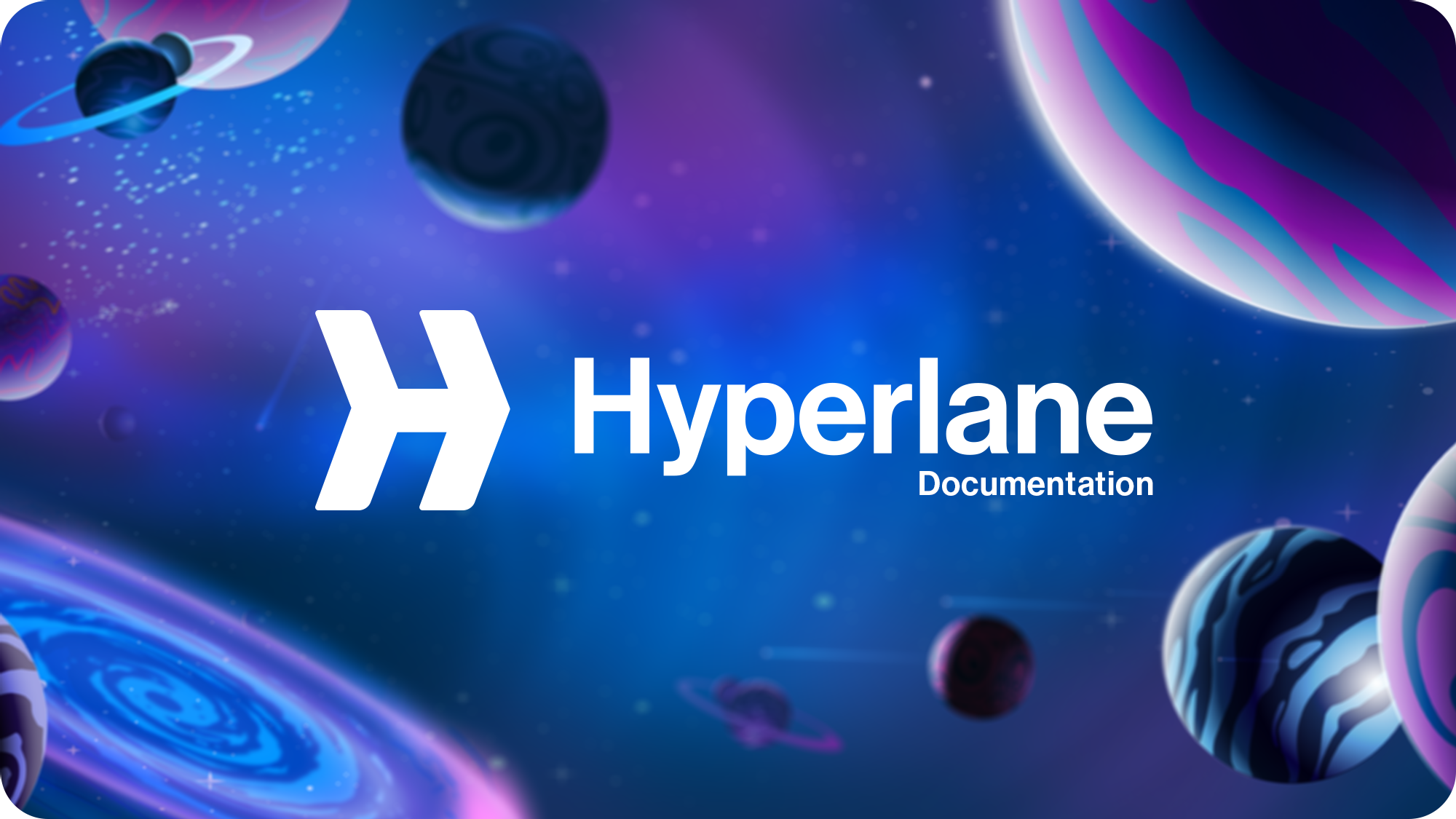Overview
Introduction
Welcome to the Hyperlane Documentation. Explore our tools, guides and references for building cross-chain applications.


QuickStart
Deploy to a New Chain
Quickly deploy Hyperlane to a new chain
Bridge Tokens with Hyperlane Warp Routes
Transfer assets across chains
Run a Validator
Step-by-step guide to running a Hyperlane Validator
Learn about the Hyperlane Protocol
Explore the components and architecture

